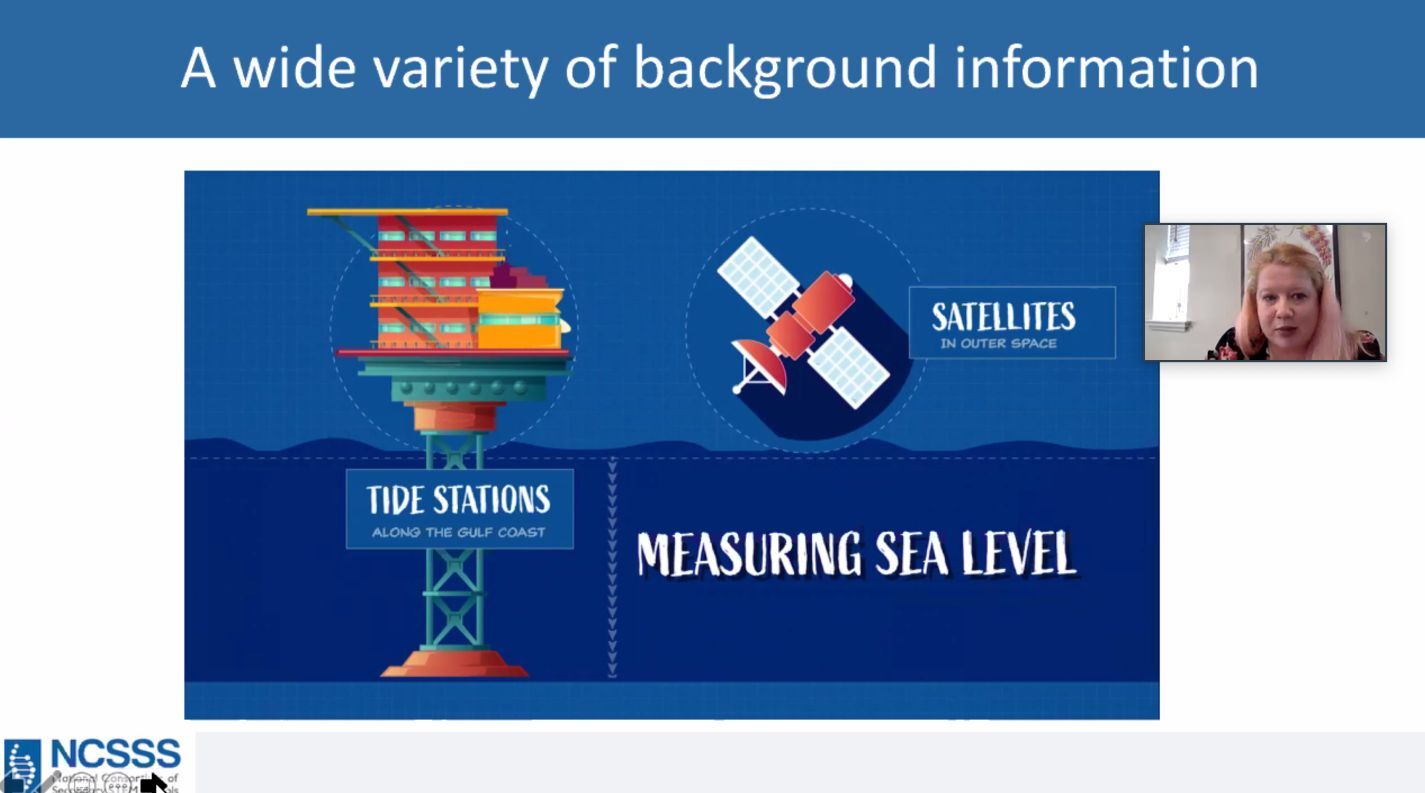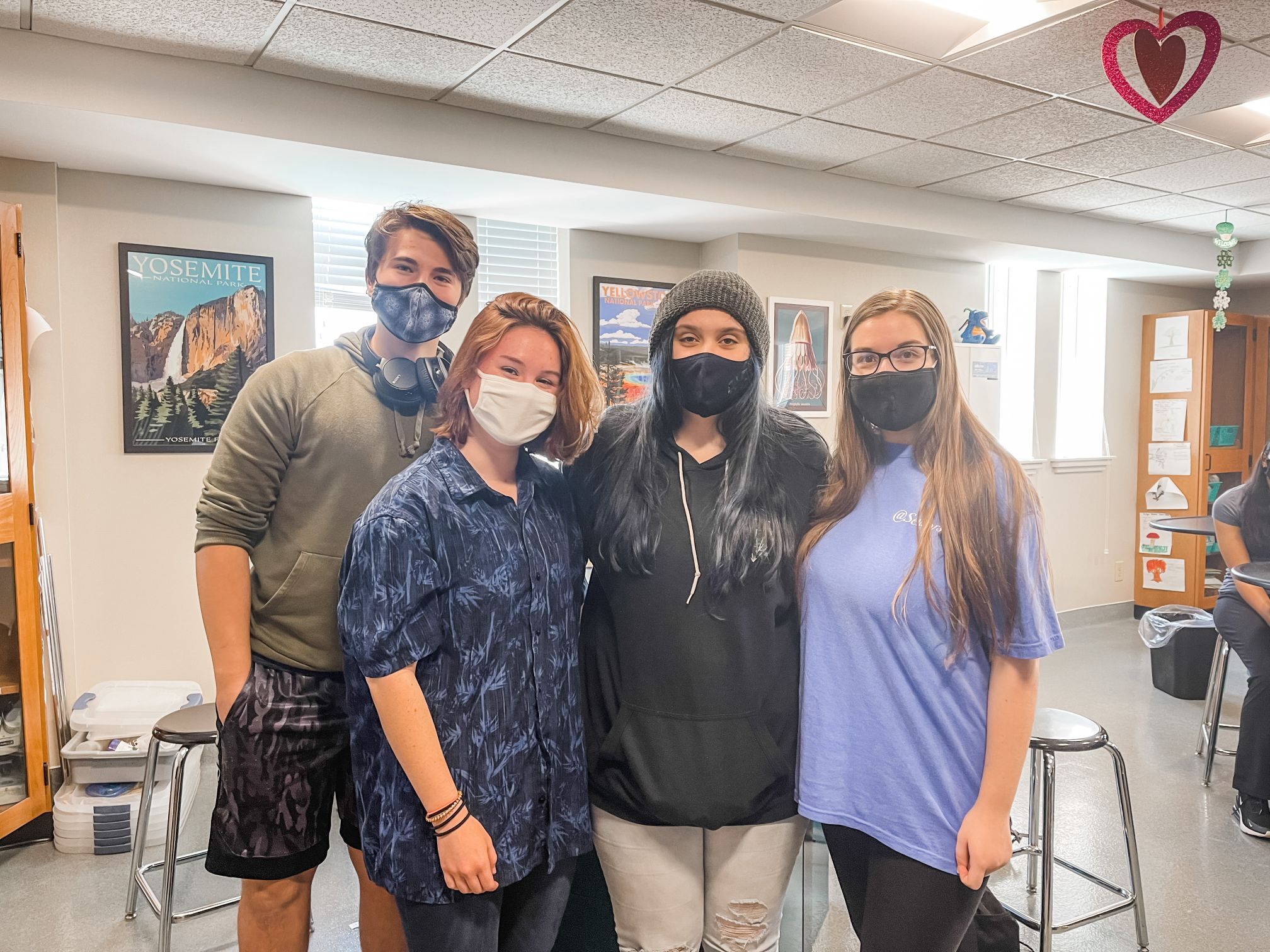ASMS Biology Instructor Completes Sea Level Rise in the Classroom Curriculum


ASMS Biology Instructor, Ms. Alison Rellinger, and several fellow research partners received a grant from the National Oceanic and Atmospheric Administration (NOAA) to educate the public and students about Sea Level Rise (SLR). Rellinger has been working for a few years to develop a classroom curriculum that “spans both science and humanities” to educate students about Sea Level Rise. You can read more about the grant and their work here. In addition, Rellinger has engaged ASMS students in the curriculum. Last spring ASMS students won 1st place at the Alabama Sea Level Rise Hazards Summit which you can read about here.
Ms. Rellinger recently announced that the Sea Level Rise in the Classroom curriculum she has been working on for several years is now complete and publicly available!
You can read the press release here:
Sea-level rise curriculum for Mississippi and Alabama high school educators now available
Science and social studies educators no longer have to struggle to understand or teach the science around sea-level rise or actions that can be taken to increase resilience. Since early 2018, a group of experienced educators and researchers have collaborated to develop the Sea-Level Rise in the Classroom curriculum. Sea-Level Rise in the Classroom helps teachers explore sea-level rise science from the intersection of social and environmental issues. The final curriculum has been released online and is free to download.
Coastal Alabama and Mississippi educators have been critical to project development, and involved in the Advisory Panel, Pilot Test, and Beta Test. By creating a high school curriculum dedicated to the risks and solutions surrounding coastal flooding, local youth and future community leaders are informed and prepared to reduce coastal vulnerability to flooding and sea-level rise.
This new curriculum’s modules work together to showcase the range of possible community actions to increase resilience. Module 1 addresses the science behind sea-level rise and coastal flooding, and the other three highlight pathways towards community resilience through individual and community action. Module 2 covers natural solutions, Module 3 allows students to investigate the role of policy and ordinances, and Module 4 brings it together through community planning. Students can also build their own plan for resilience using their new knowledge and fictional Gulf Coast towns. The curriculum can be downloaded through our website: https://placeslr.org/our-products/sea-level-rise-curriculum/.
In our effort to further support coastal education, we will host 6 teacher workshops along the Gulf of Mexico in Spring/Summer 2022! If you are interested in attending an educator workshop, please sign up on our website: https://placeslr.org/our-work/projects/environmental-literacy-program-project/
This effort was brought together by the Northern Gulf of Mexico Sentinel Site Cooperative, Alabama School of Math and Science, Dauphin Island Sea Lab, Smart Home America, Mississippi-Alabama Sea Grant Consortium, Mississippi State University, and University of South Alabama and funded by the National Academies of Sciences, Engineering, and Medicine’s Gulf Research Program. The following organizations contributed to the Advisory Panel and in-class curriculum testing: Alma Bryant HS, Ben C. Rain HS, Chickasaw HS, Daphne HS, Mobile County Public Schools’ Environmental Studies Center, Florida Fish and Wildlife Conservation Commission, Gautier HS, GCRL Marine Education Center, Grand Bay NERR, Gulf Shores HS, MSU Extension - Jackson County, Mobile County Public Schools, Murphy HS, Oak Grove HS, Ocean Springs HS, Our Lady Academy, Pascagoula HS, Pascagoula-Gautier School District, Pass Christian HS, and Weeks Bay NERR.
###
Sonia Vedral, Education Coordinator for Program for Local Adaptations to Climate Effects: Sea-Level Rise
Phone: 228.546.1030
Email: s.vedral@placeslr.org